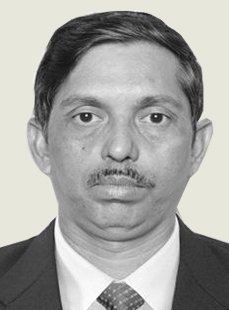Speaker

Abstract
Application of geoinformatics & electrical resistivity survey for the study of disaster impact on earth resources due to lightning
Disaster is a serious disruption of the functioning of society, posing a significant, widespread threat to human life, health, property and/or the environment, whether caused by accident, nature or human activity and whether developing suddenly or as a result of complex, long term processes. Indian sub-continent has experienced a number of natural disaster & calamities like earth quake, cyclone, flood, drought, famine, fire etc. causing loss of life, damage to property & disruption of essential services. Remote Sensing and geophysical techniques have been used for investigation in the environmental sciences with remarkable success. Remote sensing techniques are used are used because of their cost effectiveness, their ability to access areas that are difficult to access and because the data can be collected frequently and rapidly on large scale. Geophysical techniques, on the other hand, are non-invasive, and can furnish broad, composite images of subsurface over large areas at relatively low cost and high speed. Udupi coastal district is a place of high lightning incidence compared to most of the other parts in Karnataka state. Lightning causes severe damage to property, life and essential services along the costal Karnataka especially during pre-monsoon period. The geographic correlation of the lightning damage with several environmental and socio-economic variables were examined to assess the pattern of geographic distribution of the cost of lightning damage and to predict the potential high damage area of lightning strikes. In this research proposal, an attempt has been made to study Udupi of Karnataka state and its environs for the impact of lightning disaster on earth resources using Geo-ICT and geophysical survey.